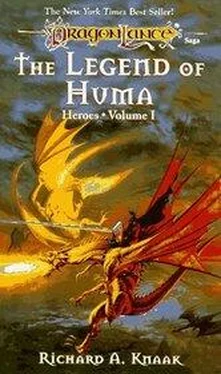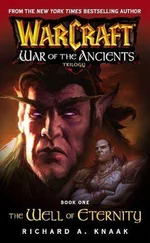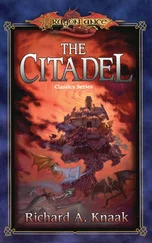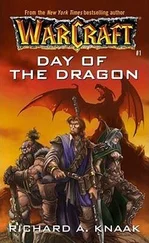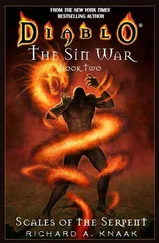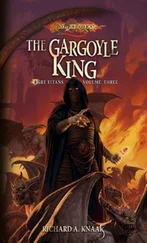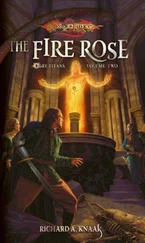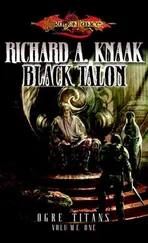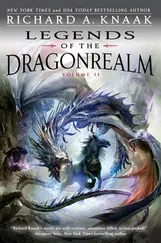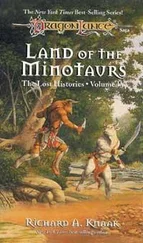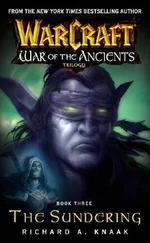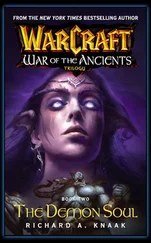Richard Knaak - The Legend of Huma
Здесь есть возможность читать онлайн «Richard Knaak - The Legend of Huma» весь текст электронной книги совершенно бесплатно (целиком полную версию без сокращений). В некоторых случаях можно слушать аудио, скачать через торрент в формате fb2 и присутствует краткое содержание. Год выпуска: 2005, ISBN: 2005, Жанр: Фэнтези, на английском языке. Описание произведения, (предисловие) а так же отзывы посетителей доступны на портале библиотеки ЛибКат.
- Название:The Legend of Huma
- Автор:
- Жанр:
- Год:2005
- ISBN:0-88038-548-0
- Рейтинг книги:4 / 5. Голосов: 1
-
Избранное:Добавить в избранное
- Отзывы:
-
Ваша оценка:
- 80
- 1
- 2
- 3
- 4
- 5
The Legend of Huma: краткое содержание, описание и аннотация
Предлагаем к чтению аннотацию, описание, краткое содержание или предисловие (зависит от того, что написал сам автор книги «The Legend of Huma»). Если вы не нашли необходимую информацию о книге — напишите в комментариях, мы постараемся отыскать её.
The Legend of Huma — читать онлайн бесплатно полную книгу (весь текст) целиком
Ниже представлен текст книги, разбитый по страницам. Система сохранения места последней прочитанной страницы, позволяет с удобством читать онлайн бесплатно книгу «The Legend of Huma», без необходимости каждый раз заново искать на чём Вы остановились. Поставьте закладку, и сможете в любой момент перейти на страницу, на которой закончили чтение.
Интервал:
Закладка:
The Legend of Huma
Richard A. Knaak
Prologue
It is very rare that I, Astinus, Master Historian of Krynn, find myself penning a personal note for inclusion in my chronicles. I have done so only once in recent memory, that being after the mage Raistlin came within a breath of becoming an all-powerful deity, mightier even than Paladine and Takhisis. He failed, else I probably would not be writing this, but it was a failure deserving of note.
While commenting on that incident, I came to realize that a vicious error had been discovered in my older volumes. By the handwriting, I suspect that one Paulus Warius, an assistant of mine some three centuries before and notable more for his clumsiness than his ability to keep records, must have accidentally destroyed part of some three or four older volumes and then replaced the damaged pages with what he assumed were correct copies. They were not.
The error concerns the transitory period between what are now called the Age of Light and the Age of Might. Ergoth, for instance, was a much older empire than is noted in the false history. Vinas Solamnus in fact commanded Ergoth’s armies by 2692 P.C., not fourteen centuries later as the false history claims. The Second Dragon War, noted incorrectly as a Second and Third war by Warius because it lasted more than forty-five years, ended in 2645 P.C. It was here I first learned of the grave mistakes, for I had opened the pages concerning those last few years in order to make reference to Huma, Knight of Solamnia, a man of very mortal flesh who faced and defeated Takhisis, goddess of evil, the Dragonqueen. I had intended, after the end of the Second Dragon War, to note Huma’s exploits but, as it always happens, my mind was on my work.
I have spent more time with this than I had originally allotted myself. Perhaps it is because I, too, felt some relief after that struggle, for I had been ready to close the final volume of this world’s history at one point. It would have been a shame, as my collection at that time consisted of only a few hundred thousand volumes. For this alone I remember Huma.
His story, fortunately, is still intact in this volume, and I will let that speak for him.
Astinus of Palanthas 360 A.C.Chapter 1
The army passed through a village on its west to Kyre. The village, called Seridan, had been set upon by plague, starvation, and madness, each seeming to take turns and each killing many of the inhabitants. In a lifetime long ago, the village had been prosperous. Now, shacks and makeshift shelters stood where clay brick buildings had fallen to the raids of bold goblins and marauding dark dragons. For some reason, the village had never been destroyed. It just continued to waste away—much like the people who tried to exist there.
The appearance of a column of knights did little to cheer the village. In fact, the inhabitants seemed to feel more than a little resentment at the way the riders and footsoldiers paraded through the mud track that was all the village could call a road. The strife-worn residents felt resentment for the way of life they assumed the Knights of Solamnia led, a way of life that they believed must be better than what each of them faced daily.
At the head of the column, resplendent in his chain and plate armor, rode Lord Oswal of Baxtrey. The intricate pattern of roses displayed on his breastplate revealed him to be a member of the Solamnic order that took that same flower for its symbol. The purple cloak that flowed behind him was attached by a clasp bearing the likeness of a kingfisher with its wings partly spread and a crown above its head. Below the bird, grasped tight in its claws, was a sword with a rose atop it.
Most of the knights were clad as Lord Oswal, although their armor was much more worn and their cloaks tended to be plain in comparison with their commander’s. Lord Oswal’s cloak was a sign of his rank—High Warrior, master of the Order of the Rose, and currently second in command to the Grand Master, he who ruled the knighthood itself.
As they rode, the High Warrior glanced quickly at the rider to his side. They might have been from the same mold, with their hawklike features and the long flowing mustaches that were popular among the knights. Oswal’s features, though, were tempered by age and a truer understanding of the world he lived in, whereas the other, younger by some twenty-odd years, still held steady to the belief that his was the hand that would change the world. They were, in fact, related. Bennett was his nephew and son of Trake, the Grand Master himself. The arrogance so set in Bennett’s face indicated that he already saw himself as his father’s successor.
Lord Oswal hoped Bennett would learn temperance by then. The young knight was of the mind that the knights followed the will of Paladine and, therefore, that they would triumph because their cause was just. Lord Oswal knew that that was not always the case.
The expressions of the younger knights in procession were carefully prepared, emotionless masks. Soon enough they would learn the cruel facts of the world. Lord Oswal knew that the younger knights—and many older ones—still saw themselves as heroes—heroes for a world already lost.
One, in particular. Lord Oswal thought, and opened his mouth to shout.
“Rennard! Up front!”
Huma watched the tall, almost gaunt knight ride forward. If Lord Oswal wished to speak to Rennard, then something was afoot. That something might involve Huma himself, for Rennard seemed to watch him keenly—although Huma was already blooded. Perhaps, like Huma himself, Rennard still believed that here was one who never should have been accepted into the ranks.
Huma bounced as his warhorse stumbled in the mud. The visor of his helmet slammed down in front of his face, startling him. He reached up and raised it, allowing the cool wind to bite at his handsome, if somewhat weathered, features. Though his mustache was not as grand as that of Bennett or the High Warrior, there was some dignity in the slight gray that prematurely touched it and the rest of the hair on his head. His visage was surprisingly soft—so much so that the others occasionally commented on his youth, although not when he was nearby.
Huma could not help staring at the grimy, torn clothing of Seridan’s women and children. Even his own armor, worn as it was and much less intricately decorated than that of Lord Oswal, seemed made of gold when compared to what they had. Their rags hung loosely, and Huma wondered how often these people ate and how much—and what they ate, for that matter. The rebellious part of his nature wanted to take his pack from the saddle and throw it to the villagers. Let them have the rations stored in there. It probably would be the best meal they had eaten in weeks.
“Keep up, you!” the knight behind him growled—and Huma realized how close he had actually come to giving away his rations. He knew it was wrong, as the knighthood rules proclaimed, but it was still a strong desire. Another sign of his inadequacies, he thought with a sigh, and wondered why his petition to join the knighthood ever had been granted.
His thoughts were interrupted by Rennard. Like Huma, the older knight carried a shield whose markings proclaimed his place in the Order of the Crown. Rennard, though, had many years of practical experience and therefore was a commander in his own right. His visor hid all but the two piercing, ice-blue eyes and only hinted at the face. Rennard had few friends even among the Order of the Crown.
Rennard returned Huma’s stare, then looked at the section as a whole. “Gaynor. Huma. Trilane. . . .” He barked eight names in all. “Break from the column for patrol duty.”
The words betrayed no emotion. Rennard was methodical, a strategist of high caliber. One could not ask for a better leader in time of combat. Nevertheless, his presence always seemed to chill some part of Huma’s soul.
Читать дальшеИнтервал:
Закладка:
Похожие книги на «The Legend of Huma»
Представляем Вашему вниманию похожие книги на «The Legend of Huma» списком для выбора. Мы отобрали схожую по названию и смыслу литературу в надежде предоставить читателям больше вариантов отыскать новые, интересные, ещё непрочитанные произведения.
Обсуждение, отзывы о книге «The Legend of Huma» и просто собственные мнения читателей. Оставьте ваши комментарии, напишите, что Вы думаете о произведении, его смысле или главных героях. Укажите что конкретно понравилось, а что нет, и почему Вы так считаете.
